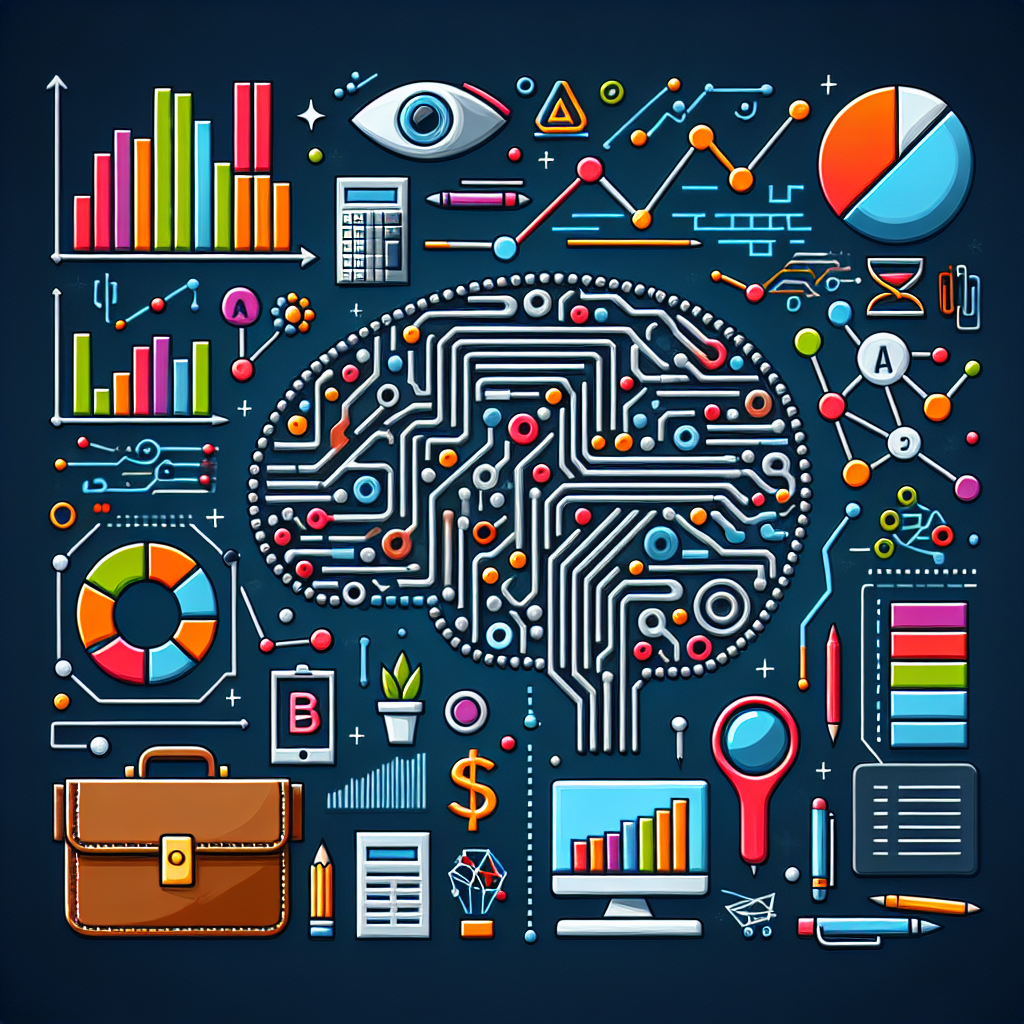Artificial intelligence (AI) driven business intelligence (BI) is revolutionizing the way organizations analyze, interpret, and utilize data to make informed business decisions. By harnessing the power of AI, businesses can gain deeper insights, identify patterns, and predict future trends with greater accuracy and efficiency than ever before. In this comprehensive overview, we will explore the benefits of AI-driven BI, key technologies and tools, challenges and considerations, and provide answers to frequently asked questions.
Benefits of AI-driven Business Intelligence
1. Improved Data Analysis: AI-powered BI tools can sift through vast amounts of data quickly and accurately, identifying trends and patterns that may not be immediately apparent to human analysts. This enables organizations to make data-driven decisions based on real-time insights.
2. Predictive Analytics: AI algorithms can analyze historical data to predict future trends and outcomes, helping businesses anticipate market changes, customer behavior, and potential risks. This proactive approach allows organizations to stay ahead of the competition and make informed decisions to drive growth.
3. Personalized Insights: AI-driven BI tools can provide personalized recommendations and insights tailored to individual users or departments. This enables employees to access the information they need to make better decisions, increasing productivity and efficiency across the organization.
4. Automation of Routine Tasks: AI can automate repetitive data processing tasks, freeing up human analysts to focus on more strategic activities. This not only saves time and resources but also reduces the risk of human error in data analysis.
5. Enhanced Data Visualization: AI-powered BI tools can generate interactive data visualizations that make complex information easier to understand and interpret. This enables users to explore data in a more intuitive and engaging way, leading to better decision-making.
Key Technologies and Tools
1. Machine Learning: Machine learning algorithms enable AI systems to learn from data, identify patterns, and make predictions without being explicitly programmed. This technology is at the core of many AI-driven BI tools, enabling organizations to analyze and interpret data at scale.
2. Natural Language Processing (NLP): NLP technology enables AI systems to understand and interpret human language, allowing users to interact with BI tools using natural language queries. This makes it easier for non-technical users to access and analyze data, democratizing BI across the organization.
3. Deep Learning: Deep learning algorithms mimic the way the human brain processes information, enabling AI systems to perform complex tasks such as image recognition and speech synthesis. This technology is increasingly being used in BI to analyze unstructured data sources such as images, videos, and text.
4. Cognitive Computing: Cognitive computing systems can understand, reason, and learn from data to provide insights and recommendations. These systems can process both structured and unstructured data, enabling organizations to gain a more holistic view of their business operations.
Challenges and Considerations
1. Data Quality: AI-driven BI is only as effective as the data it analyzes. Poor data quality, inaccuracies, and inconsistencies can lead to incorrect insights and decisions. Organizations need to ensure that their data is clean, reliable, and up-to-date to maximize the benefits of AI-driven BI.
2. Data Privacy and Security: AI-driven BI tools often require access to sensitive business data, raising concerns about data privacy and security. Organizations need to implement robust security measures and compliance protocols to protect their data from unauthorized access or breaches.
3. Skill Gap: Implementing AI-driven BI requires specialized skills and expertise in data science, machine learning, and AI technologies. Organizations may need to invest in training their employees or hiring external experts to successfully deploy and manage AI-driven BI solutions.
4. Integration with Existing Systems: Integrating AI-driven BI tools with existing IT infrastructure and data sources can be complex and time-consuming. Organizations need to carefully plan and execute the integration process to ensure seamless data flow and compatibility with existing systems.
FAQs
Q: What is the difference between traditional BI and AI-driven BI?
A: Traditional BI relies on predefined reports and dashboards to analyze historical data, whereas AI-driven BI uses AI algorithms to analyze data in real-time, identify patterns, and make predictions. AI-driven BI is more dynamic, proactive, and personalized than traditional BI.
Q: How can AI-driven BI benefit my organization?
A: AI-driven BI can help your organization gain deeper insights, predict future trends, automate routine tasks, and make data-driven decisions with greater accuracy and efficiency. This can lead to improved business performance, increased productivity, and better decision-making across the organization.
Q: What are the key technologies and tools used in AI-driven BI?
A: Key technologies and tools used in AI-driven BI include machine learning, natural language processing (NLP), deep learning, and cognitive computing. These technologies enable organizations to analyze and interpret data at scale, automate tasks, and provide personalized insights to users.
Q: What are some challenges to consider when implementing AI-driven BI?
A: Some challenges to consider when implementing AI-driven BI include data quality, data privacy and security, skill gap, and integration with existing systems. Organizations need to address these challenges to ensure the successful deployment and adoption of AI-driven BI solutions.
In conclusion, AI-driven business intelligence is transforming the way organizations analyze and utilize data to drive business growth and innovation. By leveraging the power of AI technologies, businesses can gain deeper insights, predict future trends, and make data-driven decisions with greater accuracy and efficiency. While there are challenges and considerations to overcome, the benefits of AI-driven BI far outweigh the risks, making it a valuable investment for organizations looking to stay competitive in today’s data-driven world.

